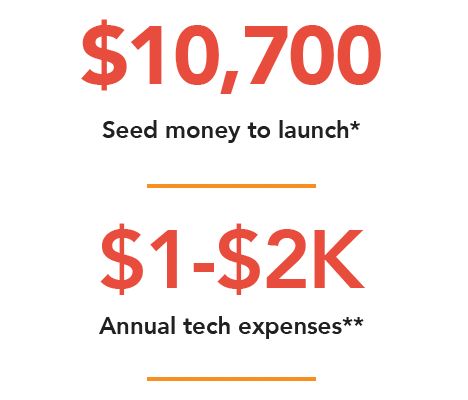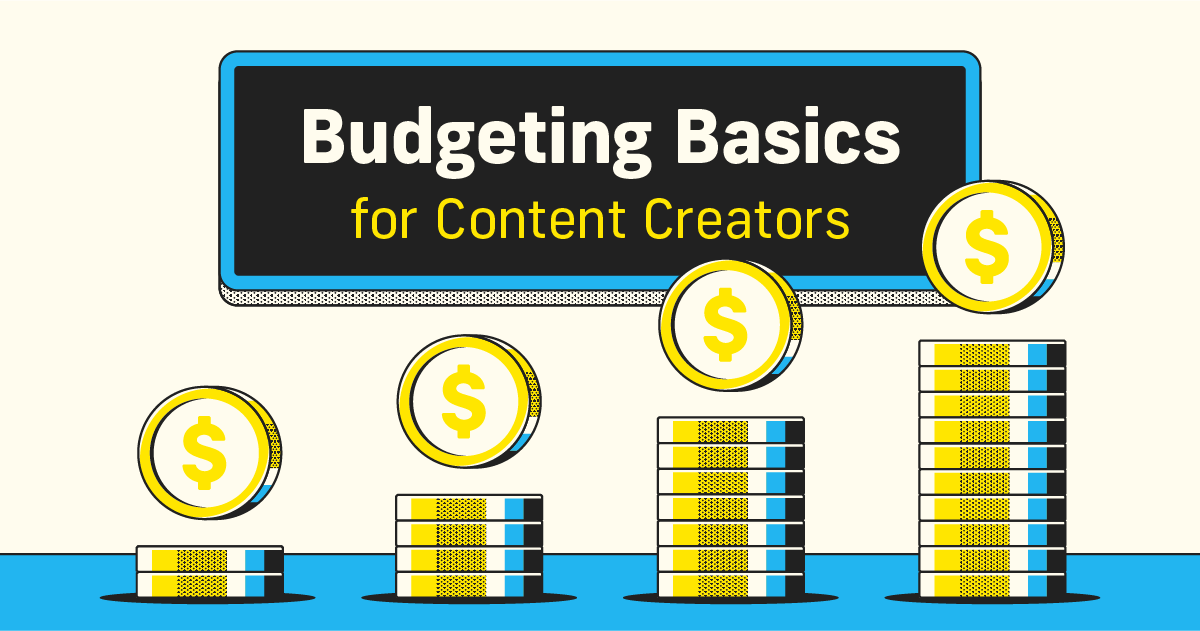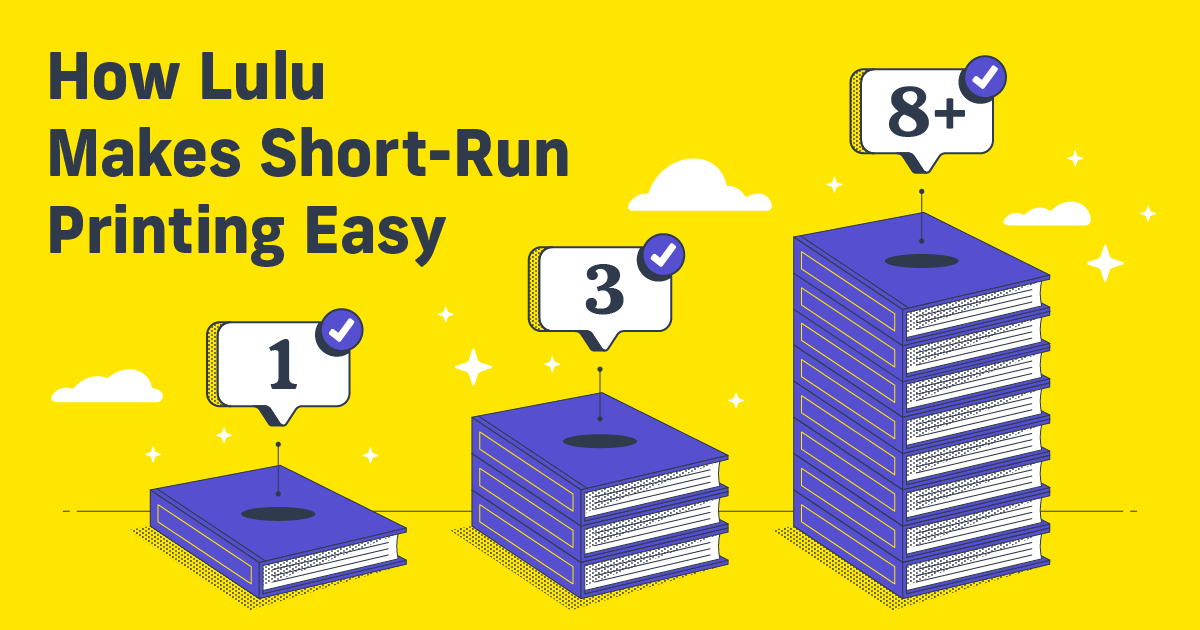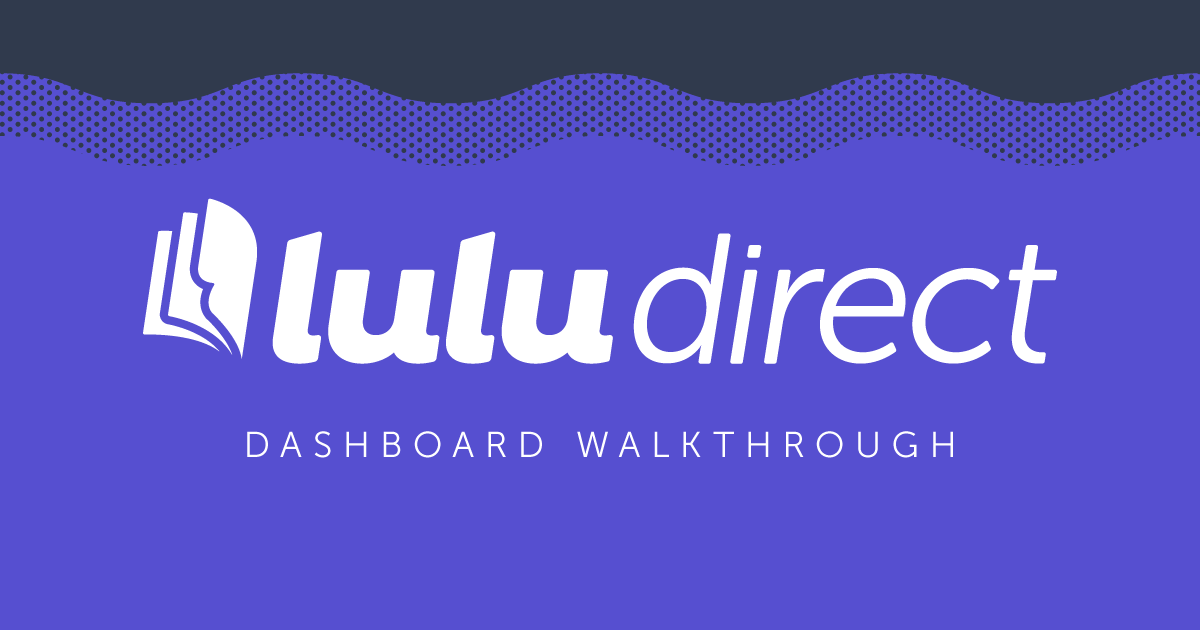Budgeting Basics for Content Creators
Creativity is fun when you’re writing, recording a podcast, or designing a graphic. That creative urge is what drives the most successful content businesses. But the desire to create something that informs or entertains is sadly not enough to run a business.
If you’re ready to turn your content into a business, your budget will be a key part of your business plan. In this article, we’ll look at how to create a simple budget to ensure you meet your business’s financial goals.
Understanding Your Content Business Finances
There are many in-depth guides for budgeting and planning. This one from HubSpot is a terrific overview of managing your business income and expenses. As you learn about operating budgets, business expenses, and all those fun accounting terms, you’ll also find yourself creating spreadsheets or other trackers.
You’ll find tons of free budget templates online, too.
I’m not here trying to reinvent the wheel, but something is missing from these budget planners: content creators’ specific costs and expenses.
But before we get into the details, let’s quickly go over some common terms you’ll need to familiarize yourself with.
Key Budget & Business Terms
- Balance Sheet – A financial statement that provides a snapshot of your business’s financial condition at a specific time, such as monthly or for an entire year. Your balance sheet will include assets, liabilities, and equity. Your content represents your assets, your costs are liabilities, and equity is anything you invest in the business.
The balance sheet is a crucial tool for assessing your financial data. - Business Model – A business model is a conceptual structure to determine how your products or services generate income. As a content creator, your business model should include plans for creating content, building an audience, and meeting your long-term goals.
Consider including pricing strategies, sales and marketing methods, and revenue goals in your business plan. - Cash Flow – Cash flow refers to the net amount of cash and assets entering and leaving your business. It can be further divided into operating and investing cash—vital information you need to know how much money you’re earning each month and your expenses.
- Cost of Goods – The cost of goods sold is what you pay for the products you sell. For example, if you use Lulu to sell your books, your customer will pay you and you’ll pay us for printing.
- Marketing Costs – No one will buy your content if they don’t know it exists! Your marketing budget comes with a lot of variable costs. You’ll need to carefully track your marketing campaigns to ensure you don’t cut into your total income.
- Net/Gross Income – Gross income reflects the profit you earn after subtracting the cost of goods or services. Net income is your overall profit after deducting all expenses (such as marketing costs).
- Personal Expenses – Personal expenses must be included in your budget. Pay yourself a fixed amount each month or week to cover personal expenses while generating revenue through your business.
There are many other terms accountants and financial advisors use to plan and run a business. These are just a few basic ones that are important to know before you plan your budget.

Your Free Lulu Account
Create a Lulu Account today to print and publish your book for readers all around the world
Crafting Your Content Business Budget
Creating a budget can be daunting. However, if you’re just starting your content business, you absolutely need to include it in your business plan. Luckily, this is the perfect opportunity to use AI tools like ChatGPT to outline and build your budget plan.
Rather than overcomplicating your efforts with balance sheets and expense reports, you should start with a simple plan that outlines key needs. I’ve modified a common budget template format for authors and creators to create a starter budget.
According to research conducted with The Tilt, most solo creators and content entrepreneurs need about $10,000 to start their business and around $2,000 a year in tech expenses.

You’ll note the budget estimate in my template is lower ($4925 for start-up and $1750 annually), but my estimates are really just for launching a book. Many entrepreneurs think beyond the first product and spend more initially to prepare for business growth.
You should think carefully about your business goals and plan accordingly to grow your business without over-taxing your resources.
I’ve added some important expenses to the template for writing, publishing, and selling your book. I’ll add that Sheet to a custom GPT called ‘Budget Buddy’ to outline my costs. Here’s the output I received (lightly edited for clarity and to include some helpful links):
Creating a budget for launching your first book is a crucial step in your publishing journey, especially as it involves considering various aspects that can significantly influence the success of your book launch. Let’s break down the budgeting process into key categories to consider:
1. Book Production Costs
- Editing: Costs can vary depending on the length of your book and the level of editing required (developmental, copyediting, proofreading). Consider getting quotes from multiple editors to find one that fits your budget and quality expectations.
- Cover Design: A professional cover design can make a huge difference. Prices can vary based on the designer’s experience and the complexity of your design.
- Formatting: If you release both digital and print versions, you must format your book accordingly. Some platforms offer tools for this, or you can hire a professional.
2. Marketing and Promotion
- Website and Hosting: If you don’t already have an author website, consider setting one up. Hosting services like Shopify, Wix, and WordPress typically charge annually.
- Email Marketing: Services like Mailchimp or ConvertKit have free tiers but may charge as your subscriber list grows.
- Social Media Ads: Budget for ads on platforms where your target audience is most active (Facebook, Instagram, X, etc.).
- Book Promotion Platforms: Consider platforms like BookBub or Goodreads for promotions, which may have associated costs.
- PR/Publicity: Hiring a PR firm or buying a press release distribution service can be pricey but effective for broader exposure.
3. Distribution and Sales
- ISBN Purchase: If you’re self-publishing and want to sell your book in bookstores or libraries, you’ll need ISBNs for each format. (Paul’s note: Lulu offers free ISBN using our imprint name.)
- Print Costs: If you opt for a print-on-demand service, factor in the cost per book and distribution fees.
4. Events and Readings
- Launch Event: Hosting a virtual or physical book launch can attract costs for the venue, refreshments, and tech setup for online events.
- Travel: If you plan to do readings or signings, include travel expenses.
5. Miscellaneous
- Contingency Fund: Always set aside a portion of your budget for unexpected expenses.
Sample Budget Plan
To give you a rough idea, here’s a simple budget plan. Adjust the numbers based on your research and specific needs:
- Editing: $500 – $2,000
- Cover Design: $200 – $800
- Formatting: $100 – $300
- Website and Hosting: $100 – $300/year
- Email Marketing: $0 – $100/month (depending on subscriber count)
- Social Media Ads: $200 – $1,000
- Book Launch Platforms: $0 – $500
- PR/Publicity: $0 – $2,000
- ISBN Purchase: $125 (single ISBN from Bowker, in the US)
- Print Costs: Variable, depending on the number of copies
- Launch Event: $100 – $1,000
- Travel: $0 – $1,000
- Contingency Fund: 10% of total budget
- Total Estimated Budget: $1,325 – $9,125
This is a broad estimate and can vary significantly based on your choices. Start by prioritizing what’s most important for your book’s success and what you can handle personally to save costs. Then, allocate your budget based on those priorities. Good luck with your book launch!
For a robot, ChatGPT did a pretty good job of organizing and estimating the costs of creating and launching a book. The template I linked above has my estimates—if you compare them, you’ll see a lot of similarities.
While I am hesitant to rely heavily on AI for creating content, putting the machines to work with clerical tasks like outlining a budget is a great way to save time and energy.
Tools and Techniques for Budget Management
With an outline for your startup costs and book launch needs, your initial creator budget should give you a sense of how much funding you need to get started.
But what about once you’ve got your content business up and running, published some books, and added additional revenue streams like courses, speaking events, and coaching? You need proper financial planning tools to track monthly income and ensure you’re working toward your business goals.
If your business is growing, you may need to hire an accountant to help manage your finances. But for small businesses, there are options like Wave Financial or Zoho Books—both platforms have free-to-use accounts with options to scale up as your business grows. Or you can keep it simple and manage your finances with a spreadsheet like the sample I created.
Thinking about money and budgeting is the least exciting part of the creator economy, but it is absolutely necessary if you want to be a successful content entrepreneur.




